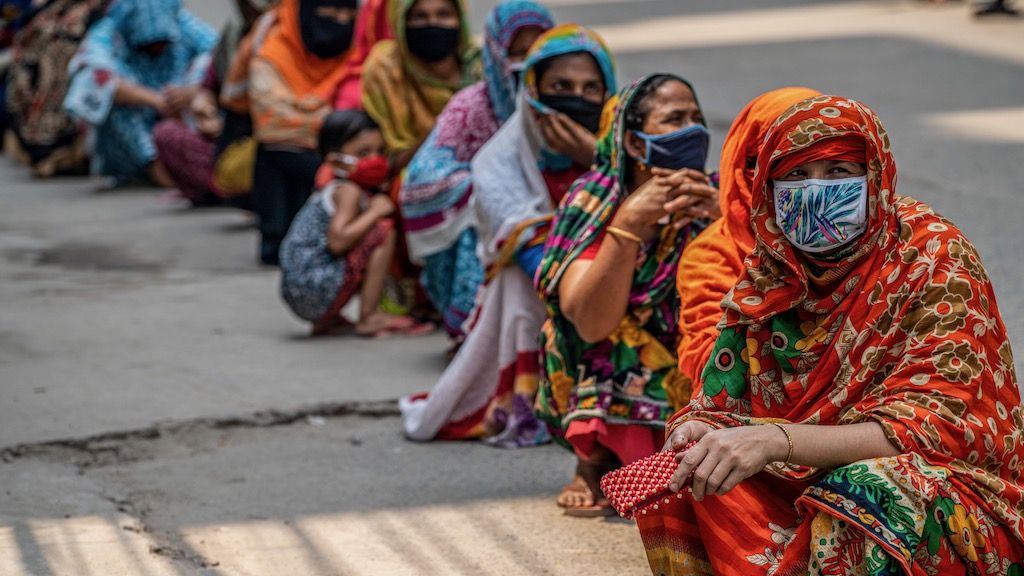How did COVID-19 affect global efforts to achieve the United Nation’s Sustainable Development Goals? Did it affect rich and poor countries differently? What limits are low-income countries facing?
The John D. Gerhart Center of the AUC School of Business invited Guillaume Lafortune, the director of the Sustainable Development Solutions Network (SDSN) in Paris, to discuss these questions in a special webinar.
The SDSN was founded in 2012 by Ban Ki-Moon, the United Nations Secretary-General at the time. Its purpose was to focus on researching what the next development goals should be.
From 2000 to 2015, the UN’s development agenda was centered around the Millennium Development Goals (MDGs). The SDSN helped to inform how the agenda was going to evolve, and thus, the Sustainable Development Goals (SDGs) were born and adopted by all UN member states in 2015.
According to the network’s latest sustainable development report, published this year, the SDGs were dealt a blow by the COVID-19 pandemic. For the first since its adoption, the SDG index declined in 2020.
Lafortune says that the SDGs provide a good framework for countries to design economic recovery plans or “build forward better” as he puts it. However, one of the main obstacles that developing countries are facing is the lack of fiscal space to spend on SDGs.
He adds that there is a wide gap in access to financing between developed and developing countries. High-income countries are more able to finance their recoveries through debt and access to international markets than their lower-income counterparts.
With agreements to reach several SDG milestones by 2030, Lafortune reveals that one of the SDSN 2021 report’s key findings were a strong need for a global multilateral system to help meet this deadline. While individual countries may make good progress on SDGs, they are still subject to cross-border spillovers such as unsustainable trade, pollution and tax havens which undermines their efforts.
Thanks to the inequality in access to finance and fiscal space, Lafortune further reveals that this caused a demonstrable inequality in recoveries between higher and lower-income countries. This has also led to a globally muddled tackling of the pandemic where high-income countries have been better equipped to suppress COVID-19.
Fiscal space must be increased for developing countries to help them achieve their SDG targets and effectively suppress the pandemic, Lafortune says. For the threat of COVID-19 to disappear globally, all countries need to be able to fight it. Otherwise, rich countries that have been able to manage the pandemic within their own territories will always be vulnerable to international spillovers.
“Achieving the SDGs depends on our ability to respond effectively to this pandemic,” Lafortune says. He explains that this can be achieved by improving global monetary management as well as better tax collection through global tax reforms. Tax havens, profit shifting and international legal loopholes which allow for money laundering significantly deplete wealth from developing countries.
Debt relief and the expansion of multilateral development banks to finance long-term development would also go a long way. One of the SDGs even explicitly states that the world needs to work to increase financing for developing countries.
The post-pandemic recovery should not be one that goes back to the pre-pandemic “normal”. Instead, COVID-19 presents a golden opportunity to build back a better, more sustainable economy.
“If anything, this crisis revealed the need to accelerate progress towards” SDGs such as “universal health care [and] social protection.” Countries that had better universal health care managed the pandemic much better than those that did not.
The SDGs can provide several key transformations for countries to rebuild their economies to something even better than before, according to Lafortune. The goals each exist in a circle and feed into each other, as opposed to being isolated policy goals.
Among them are education, inequality, health, decarbonizing, sustainable industries, sustainable resource management, building sustainable cities and communities and digital transformation in the interest of sustainable development.
“We have to remind ourselves that it’s the first time in human history that we have a common set of goals for the entire world, which is a huge achievement.”









